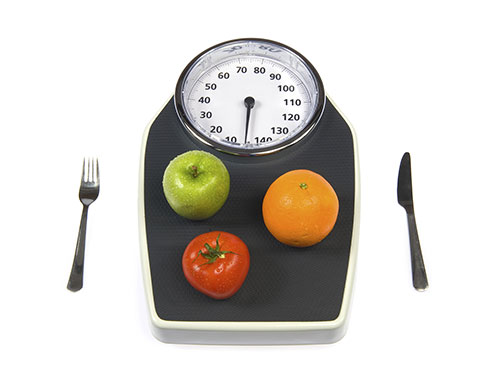 To lose weight, people often are advised to consume more fruits and vegetables to create the sense of being full, but that may be a dietary dead-end, UAB researchers say in the American Journal of Clinical Nutrition.
To lose weight, people often are advised to consume more fruits and vegetables to create the sense of being full, but that may be a dietary dead-end, UAB researchers say in the American Journal of Clinical Nutrition.
Kathryn Kaiser, Ph.D., instructor in the UAB School of Public Health, and a team of investigators at UAB and Purdue University conducted a systematic review and meta-analysis of data for more than 1,200 participants in seven randomized, controlled trials that focused on increasing fruit and vegetable intake to measure any effects on weight-loss. The results show that increased fruit and vegetable consumption per se does not reduce or increase body weight.
“Across the board, all studies we reviewed showed a near-zero effect on weight-loss,” Kaiser said. “Just adding them on top of whatever foods a person may be eating is not likely to cause weight change.
| “People make the assumption that higher-fiber foods like fruits and vegetables will displace the less healthy foods and that’s a mechanism to lose weight; but our findings from the best available evidence show that effect doesn’t seem to be present among people simply instructed to increase fruit and vegetable intake. To reduce weight you have to reduce caloric intake.” |
“People make the assumption that higher-fiber foods like fruits and vegetables will displace the less healthy foods and that’s a mechanism to lose weight; but our findings from the best available evidence show that effect doesn’t seem to be present among people simply instructed to increase fruit and vegetable intake,” Kaiser said. “To reduce weight you have to reduce caloric intake.”
Kaiser believes a change in public health messaging and study design is needed.
People are spending a great deal of money figuring out how to increase fruit and vegetable intake — which has many benefits to health — but weight-loss isn’t one of them, Kaiser said. “I think working on more multimodal healthy lifestyle interventions would be a better use of time and money.”
Kaiser says more high-quality research is needed to investigate ways in which multiple foods may interact to create healthful weight-loss that can be maintained.
“We need to design mechanistic studies to understand these things better so we can help the public be best informed and know what to do for weight-loss,” she said. “Overly simplified messages don’t seem to be very effective.”
Kaiser’s colleagues at UAB including Andrew W. Brown, Ph.D., Michelle M. Bohan Brown, Ph.D., James M. Shikany, DrPH, and David B. Allison, Ph.D., associate dean for science in the UAB School of Public Health.
